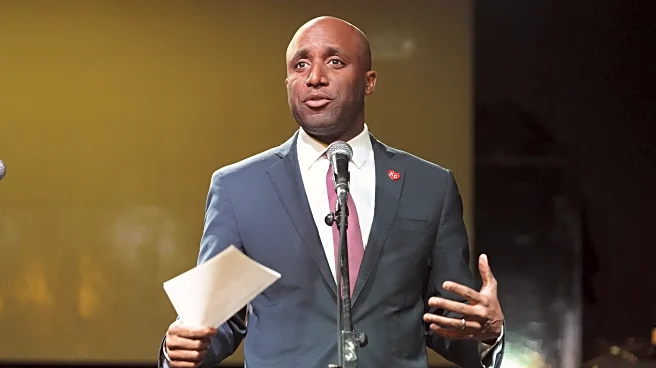What's Happening?
Saudi Arabia and Pakistan have signed a formal mutual defense pact, strengthening their decades-long security partnership. The agreement, signed by Saudi Crown Prince Mohammed bin Salman and Pakistani Prime Minister Shehbaz Sharif, comes amid growing concerns among Gulf Arab states about the reliability of U.S. security guarantees. The pact aims to institutionalize defense cooperation between the two countries and enhance joint deterrence against aggression.
Why It's Important?
This defense pact is a strategic move that reflects the shifting security dynamics in the Middle East. As Gulf states become increasingly wary of U.S. commitments, Saudi Arabia's partnership with Pakistan provides a new layer of security assurance. For Pakistan, the agreement bolsters its defense capabilities and offers a strategic counterbalance to its rival, India. The pact could also influence regional alliances and prompt other countries to reconsider their security arrangements.
What's Next?
The agreement may lead to increased military collaboration between Saudi Arabia and Pakistan, including joint training and defense initiatives. It could also impact diplomatic relations in the region, particularly with India, which may need to reassess its security strategy. The pact might encourage other Gulf states to explore similar agreements, potentially reshaping the regional security landscape.
Beyond the Headlines
The pact could have deeper implications for regional stability, as it may alter the balance of power and influence diplomatic relations. The agreement highlights the strategic importance of Pakistan's military capabilities, including its nuclear arsenal, although the pact does not explicitly cover nuclear defense. It also underscores the evolving nature of international alliances in response to shifting geopolitical realities.









